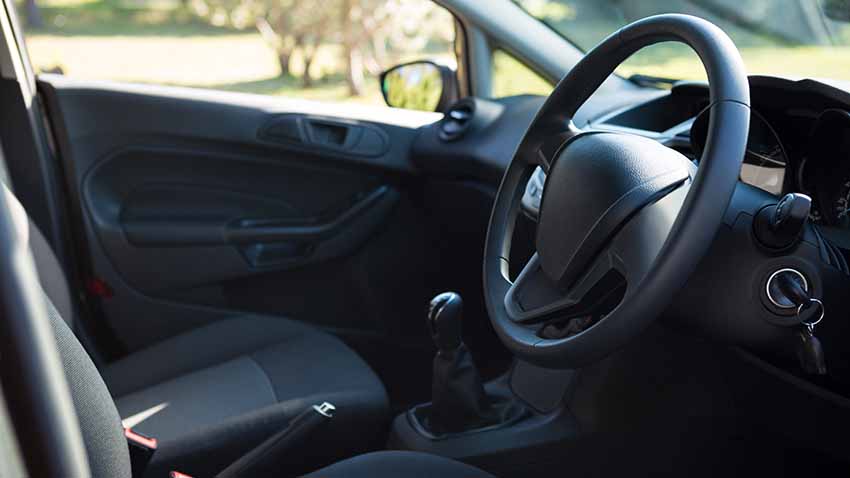
It seems that technology these days is rushed to market with a lot of hype and raised expectations. It also seems that the reality doesn't always live up to the elevated hopes of eager consumers. If we're lucky, shortcomings are found before products are too widely released; if we're not, then users of these technological marvels may experience disappointment, frustration or worse. It seems this is as true in the emerging field of autonomous vehicle technology as anywhere else.
What's in a name?
Some of the most hyped products of the last couple of years have been those claiming to be powered by "artificial intelligence", usually known as "AI". Years ago, the term was used speculatively in reference to the holy grail of computing, genuine artificial intelligence that could think and innovate to the point where its responses during interaction would be almost indistinguishable from those of a human being. These days the concept is watered down for marketing purposes and applied to any complex algorithm that does impressive tricks while jumping through previously unjumpable (is that a word?) computing hoops.
Cars fell to the relentless advance of our robot overlords some years ago. These days it is often impossible for us to fix our own cars if things go awry. Instead, we drag our stricken machines to expensive mechanics who hook them up to beeping boxes whose workings no one quite understands. The problem is often not mechanical at all, but a glitch in the "intelligent" system that was incorporated into the vehicle for our convenience (or frustration). So, are these things really ready to start driving themselves?
The autonomous car revolution?
The idea of self-driving cars has been eagerly adopted by the usual corporate suspects, as well as some that may come as more of a surprise. Car manufacturers such as Tesla, Ford, Volkswagen and others are partnering with a host of specialist companies who develop most of the actual self-driving technology. Some of the other names linked to the autonomous car craze may be more familiar to internet users and video gamers than to car enthusiasts, as Google and Nvidia are also involved. With so many interested parties, it is hardly surprising that the field is a bit of a muddy one.
With the move to driverless cars (and freedom from having to pay those expensive and troublesome human employees) in its sights, Uber will, no doubt, be looking out for potential problems and hoping not to repeat its earlier experience. With that in mind, we wonder what they make of Tesla's ongoing accident issues.
A bumpy road
In 2022, US Federal regulators stated that there had been 392 car crashes involving self-driving systems in the preceding year. Of those reported incidents, 273 involved Tesla's Full Self-Driving mode. Tesla has confirmed to US regulators that a fatal accident in February 2023 involving one of its Tesla S models had occurred while the vehicle's automated driver-assist system was in operation. The accident, which took place in California, was the 17th confirmed fatal crash since 2021 involving a Tesla while the car was operating on the automated system.
The latest public release of data collected by the USA's National Highway Traffic Safety Administration in regard to Level 2 automated driving systems shows that during the data period there were 66 reported accidents involving such automatically guided cars. It isn't clear how many of those specific incidents involved Teslas, but it is certainly notable that the NHTSA told Tesla to recall 300,000 of its Tesla Model S, Model X, Model 3 and Model Y for a software update to their Full Self-Driving Beta software because of vehicles' alleged unpredictable behaviour at road junctions.
Vehicles operated by Waymo, formerly Google's self-drive project, are also reported to have been involved in at least two crashes and 18 "minor contact events".
Where the USA goes, the UK tends to follow
In the UK, the supermarket chain Asda is about to begin using autonomous vehicles to deliver groceries to customers. The vehicles, which will use Wayve's self-drive systems will, reportedly, have human back-ups on board. Ocado is also planning to trial a similar Wayve-guided self-drive delivery service in London.
Ford's BlueCruise-enabled Mach-E car has been approved for sale in the UK. The Mach-E is not fully self-driving but it does have features that allow the car to steer and brake by itself to a limited extent. This is a significant step towards the government's goal to have level-5 (fully autonomous) cars driving on UK roads within the next few years.
Are we really ready for cybernetic chauffeurs?
So, self-driving vehicles are already a reality on roads in the USA, the UK and other countries, even if the rules do still require a human failsafe for the time being. No doubt the technology will undergo further refinement and, with the government's evident eagerness to promote autonomous transport, one could reasonably expect infrastructure to be improved in order to accommodate and support the new road order. Of course, what one might reasonably expect and what the government is prepared to pay for aren't always the same thing. In general, it is reasonable to expect the technology to mature and become feasible as a general alternative to having humans entirely guide their own vehicles.
On the other hand, current systems are evidently still very fallible - sometimes fatally so - so there is a way to go before self-driving cars will be universally accepted as safe and ready for regular use. There's also the issue of rules, regulations and guidelines. What is set out was, in some cases, written some years ago when development was at a very different stage. The UK government's Code of Practice: Automated Vehicle Trialling was released in 2015. It has been updated since but the last revision date was January 2022, more than a year ago, so perhaps not quite as current as might be hoped bearing in mind the number of schemes now being tested.
What are your thoughts about self-driving cars on UK roads? Drop us an email or get in touch via our social media.
We expect to return to this topic very soon. There seems to be a lot going on.
